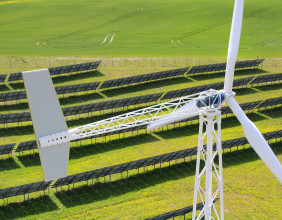Highlights
- Vitreous Glass Inc (VCI) displays strong free cash flow despite lower reported profits
- Negative accrual ratio signals efficient cash generation processes
- Emerging risk signals emphasize caution amid financial improvements
Vitreous Glass Inc (TSX:VCI), listed on the Canadian Venture Exchange, operates within the specialty manufacturing sector, focusing on glass products. The company has recently released its financial report, which, while showing lower statutory profits, reveals impressive free cash flow generation. This performance metric is critical as it indicates the company’s ability to convert its earnings into liquid resources. The financial data for the year ending December has captured the attention of market participants, given its potential to mask underlying operational strengths even when headline profit figures appear softer.
Understanding Free Cash Flow and Accrual Ratios
A key metric in evaluating a company’s performance is free cash flow (FCF), which reflects the cash generated from operations after accounting for capital expenditures. In the case of Vitreous Glass Inc, free cash flow exceeds the reported profit significantly. This disparity is captured by the accrual ratio—a measure that compares net income to operating cash flow. A negative accrual ratio indicates that the cash flow produced by the company outstrips its accounting profits. Such a metric is often viewed as a sign of effective working capital management and operational efficiency. For Vitreous Glass Inc, the negative accrual ratio suggests that the company is successfully converting its earnings into real cash, thereby strengthening its financial position.
Earnings Performance Versus Cash Generation
While the company’s reported profits have softened in the latest period, the ability to generate robust free cash flow is a positive indicator of financial health. Lower statutory profit figures can sometimes result from accounting policies or one-time adjustments, which may not reflect the core operational performance. In contrast, free cash flow provides a clearer picture of how much cash is available to support growth initiatives, service debt, and fund future operations. Vitreous Glass Inc’s performance in this area suggests that, despite challenges on the profit line, the company is able to manage its operations in a way that produces a steady stream of liquidity. This efficiency in converting earnings into cash is a vital sign of operational strength in a competitive market environment.
Operational Efficiency and Financial Health
The effective management of capital resources is critical for companies operating in manufacturing-intensive industries. Vitreous Glass Inc demonstrates this through its disciplined approach to managing expenses and optimizing working capital. The negative accrual ratio is a reflection of both strong cash generation capabilities and the company’s focus on maintaining operational efficiency. Such practices are indicative of a management team that prioritizes the long-term financial stability of the business over short-term profit fluctuations. In an industry where capital expenditures can be significant, the ability to sustain strong free cash flow serves as a testament to robust financial management and a sound operational framework.
Identified Risk Factors and Their Impact
Despite the encouraging free cash flow performance, certain risk factors warrant attention. The presence of warning signals in the financial metrics highlights potential vulnerabilities that could affect future performance. Among these risks are issues related to market volatility, fluctuations in raw material costs, and potential operational setbacks. These challenges underscore the importance of a thorough analysis of the company’s risk profile. For Vitreous Glass Inc, the strength of its cash generation does not completely offset the concerns raised by its lower statutory profits. Monitoring these risks closely is essential, as they may influence the company’s ability to maintain its current financial trajectory over the longer term.
Sector Comparison and Market Context
Within the specialty manufacturing sector, many companies face similar challenges when navigating volatile market conditions and fluctuating commodity prices. Compared to peers, Vitreous Glass Inc’s ability to generate significant free cash flow is a notable strength. While other companies may report higher profits, the efficiency in converting those profits into liquid assets is a critical competitive advantage. This financial resilience can prove advantageous in an industry characterized by cyclical demand and variable operating costs. Market participants who assess companies on both profitability and cash flow metrics often find that those with strong FCF are better positioned to withstand economic downturns and invest in growth opportunities when market conditions improve.
Future Prospects and Strategic Considerations
Looking ahead, the interplay between free cash flow performance and profit volatility will remain a central theme for Vitreous Glass Inc. The company’s ability to sustain its current level of cash generation while addressing underlying profitability challenges is crucial for its long-term strategic outlook. Effective cost management and continuous operational improvements could pave the way for enhanced profit margins in future reporting periods. Moreover, a focused strategy on reducing exposure to external risks—such as fluctuations in raw material prices and market demand—will be important in reinforcing financial stability. The strong free cash flow position may also provide the company with the flexibility to pursue strategic initiatives that drive growth, such as technological upgrades or capacity expansions, thereby enhancing competitive positioning in the market.
Corporate Governance and Management Practices
Solid corporate governance is essential in ensuring that operational efficiencies translate into sustainable financial performance. The management team at Vitreous Glass Inc appears committed to a disciplined approach in overseeing the company’s operations and financial practices. Emphasis on transparency, effective risk management, and prudent capital allocation are critical elements that contribute to a strong governance framework. These practices not only support current free cash flow generation but also enhance the ability to navigate future challenges. In a competitive environment, robust governance can be a differentiator that instills confidence among stakeholders by ensuring that management decisions align with long-term strategic objectives.
Market Dynamics and Competitive Environment
The broader market for specialty manufacturing companies is influenced by a range of external factors, including economic cycles, commodity price fluctuations, and technological innovations. Vitreous Glass Inc operates in an environment where these dynamics can have a pronounced impact on both profitability and cash flow. While the company has demonstrated strength in converting profits into cash, its financial performance must be viewed in the context of broader industry trends. Competitive pressures may drive ongoing adjustments in operational strategies, and the ability to remain agile amid changing market conditions will be vital for long-term success. Monitoring these external influences alongside internal performance metrics will provide a more comprehensive understanding of the company’s future prospects.
Key Observations on Financial Resilience
The financial performance of Vitreous Glass Inc presents a multifaceted picture. The robust free cash flow generation, as evidenced by a negative accrual ratio, underscores the company’s capacity to efficiently manage its operations despite softer reported profits. This capability is a crucial element of financial resilience in a challenging economic landscape. However, potential risks remain, and the company must navigate these carefully to sustain its current performance. The ability to convert earnings into cash is a significant strength, particularly when market conditions fluctuate. This characteristic positions Vitreous Glass Inc as a company with a solid foundation, even as it works to address underlying challenges in profitability.
Final Insights on Strategic Financial Performance
The narrative surrounding Vitreous Glass Inc (TSX:VCI) highlights a company that is effectively managing its operational cash flows while facing challenges in reported earnings. The strong free cash flow performance, indicated by a negative accrual ratio, is a testament to efficient management practices and operational discipline. At the same time, the presence of risk factors serves as a reminder that sustainable financial success depends on addressing all aspects of performance. The interplay between robust cash generation and lower statutory profits will continue to be a focal point as the company strives to enhance its financial stability and unlock future growth opportunities. Through disciplined operational improvements, sound corporate governance, and strategic cost management, Vitreous Glass Inc is positioned to navigate the complexities of its market environment, offering a compelling case study in financial resilience and strategic execution.




